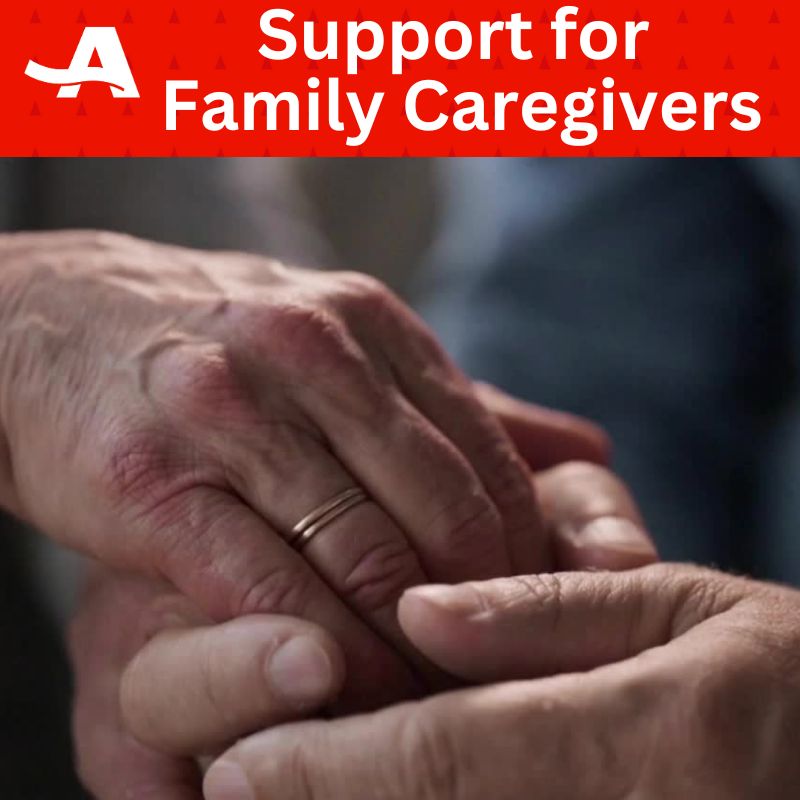AARP Hearing Center

Caregiving is a natural part of the cycle of life. Allowing ourselves space for self-care is one of the most important tasks in our curriculum for living. When was the last time that you set out on an adventure of deep self-care? At its core caregiving is an ever-evolving cycle of balancing self-care and caring for others. Sadly, limited attention is provided across media platforms, about the necessity of caregiving and self-care.
The National Alliance for Caregiving reports that 43.5 million caregivers are either informal or unpaid and these numbers have seen a steady increase in the last five years by almost 10 million. Similarly, according to an AARP survey if unpaid or informal caregiving had a dollar value it would garner an estimated cost in the United States alone of approximately $600 billion dollars. Given the sacrifice, time investment and projected cost for unpaid and informal care, why aren’t we talking more about the importance of caregiving?
The transition into becoming a new or evolving caregiver is a uniquely personal experience. Discovering oneself as a caregiver can be a rewarding task that in no uncertain terms is hard work. Providing care includes an ongoing series of sensitives in skill building as the care recipient’s health challenges progress. Unfortunately for many caregivers the necessity of self-care is often overlooked or buried beneath an avalanche of scheduled responsibilities. Adjusting to a multiplicity of new and sometimes unexpected tasks makes the necessity for emotional self-care vital.
Planning for self-care while actively engaging in caregiving can proactively mitigate behavioral health concerns such as limiting beliefs, compassion fatigue and loneliness. For some caregivers questions such as ‘what about me’ or ‘will I ever get a break’, can be considered a luxury when continued support for another is a daily requirement. However, recognizing emotional red flags such as negative self-talk, depression, burnout and difficulty adjusting to role reversals are important signals that the caregiver may require professional support.
The Caring for the Caregiver four-session workshop series, offered by AARP VI annually, is an online platform designed to provide support and practical information, tips and experiences for busy caregivers to meet with other caregivers both locally and nationally to exhale, become empowered and learn from their shared personal resources. Be sure to keep an eye on AARP VI’s Facebook page (facebook.com/aarpvi), website (aarp.org/vi), and emails for the upcoming class schedule for 2025
Each workshop is structured into two sections The Learning Lab and A Place for Us. In The Learning Lab participants are provided with practical information about managing the caregiving lifestyle. A range of strategies and tips for negotiating the ongoing challenges of the caregiving journey is provided from its inception to managing the adjustments when the caregiving journey ends.
Similarly, in A Place for Us participants are provided with an interactive forum that incorporates heart-to-heart testimonials from peers, guided discussion, and activities designed to encourage lifestyle shifts beyond the workshop experience. Participants are encouraged to include self-guided practices such as journaling and breathing exercises as part of their activities of daily living.
The objective for the workshops series is to provide information and experiences that will aid participants in deepening their knowledge of the caregiving journey and to discover ways to balance self-care. There are currently four workshops in the Caring for the Caregiver series which include:
Session 1: Who’s Driving the Bus? - The Intersection of Narrative and the Transition into Caregiving. In this session participants explore the transition into becoming a caregiver and the internal narratives that support the stages of transition. Participants discover strategies for managing multiple caregiver networks and the importance of self-awareness in their caregiving journeys.
Session 2: Giveometry: Dimensions of Caregiving uses simple geometric symbols to explore the complexity involved in finding the right balance in managing the quality care for loved ones while ensuring that self-care is not excluded.
Session 3: The Place For Us: The Wisdom of Caregiver Self-Care narrows the focus of the caregiving experience by addressing common misconceptions such as the need to be an extraordinary or perfect caregiver, compassion fatigue, loneliness and self-forgiveness as self-care resources.
Session 4: What’s Your Who? In this session participants face-off with the complexities involved in discovering what’s next after the caregiving journey has ended. At the heart of this workshop participants consider the requirements for creating brave new stories as they adjust to the shift in their roles of self-care.
In the circle of life caregiving is an imperative. We must encourage more conversations about negotiating the delicate balance between caregiving and self-care. As more awareness is generated about the importance of caregiving and self-care perhaps it will inspire the development for increased community resources.
As a caregiver how much effort are you able to put into self-care? The sensitivity of caregiving may never become a priority to the general community if informal and unpaid caregivers remain silent. Share the highs and lows of your caregiving experiences with others in your family, community, faith-based organizations and at work. If you’ve haven’t arrived there as yet at some point you will be impacted by caregiving. Everyone is impacted by caregiving, you will require it, or someone will require it of you.
Raising awareness about caregiving, will help others to discover the important balance of self-care in caregiving. The collective voices and experiences of both formal and informal caregivers in the world matters! Your voice matters! Your self-care matters!
We hope to see you in the next Caring for the Caregivers workshop series in 2025! Be sure to keep an eye on AARP VI’s Facebook page (facebook.com/aarpvi), website (aarp.org/vi), and emails for the upcoming class schedule for 2025.































































